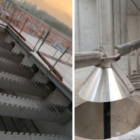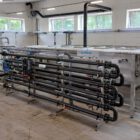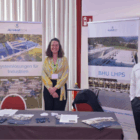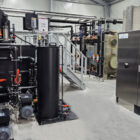The skid design describes a modular construction method in which complete technical systems or system components are pre-assembled on a stable frame (the so-called skid) and delivered ready for use. The skids consist of a steel or stainless steel frame on which all relevant system components, such as pumps, valves, measurement and control technology, pipelines, tanks and control units, are compactly mounted.
This concept is used in particular in industrial water and wastewater technology, as it enables efficient, space-saving and cost-effective installation. Skid systems are often used in processes such as reverse osmosis, dosing technology, ultrafiltration, ion exchange and flotation.
Table of contents
Technical background to the skid design
Structure and design of a skid
A typical skid system consists of several functional components that are joined together on a frame:
supporting structure:
- The frame is usually made of corrosion-resistant steel or stainless steel and optimized for industrial use.
- It enables safe transportation and easy integration into existing systems.
Process technology components:
- Pumps: For pumping water or chemicals.
- Valves and fittings: For controlling the volume flow and pressure ratios.
- Filter: For removing particles or impurities.
- Pipes: Made of materials such as stainless steel, PVC or PE, depending on the chemical load.
- Measurement and control technology: sensors for pH value, conductivity, pressure, temperature or flow rate.
Control unit (automation):
- Integrated control systems (e.g. PLC) for monitoring and controlling the process.
- Interfaces for communication with higher-level control systems (e.g. SCADA).
Utilities:
- Containers for chemicals, dosing systems and connections for electricity, water or compressed air are optional.
Manufacturing process
The skid construction method comprises several steps that optimize the construction process:
- Planning and construction:
- CAD-supported design to precisely define the space requirements and interfaces.
- Integration of specific customer requirements.
- Pre-assembly:
- All components are assembled, tested and inspected at the manufacturer's production facility.
- Functional tests (Factory Acceptance Test, FAT):
- Before delivery, the skids are checked for functionality in order to minimize errors.
- Transportation and installation:
- The finished skid is transported to the installation site, where it is installed and commissioned with minimal effort.
Advantages of the skid design
Modularity:
- Skids are independent, compact units that can be easily integrated into existing systems.
- Modular design allows flexible expansion of capacity.
Space saving:
- Thanks to their compact design, skids are particularly suitable for confined spaces.
- All components are optimally arranged to make efficient use of the available space.
Reduced installation effort:
- As all components are pre-assembled, installation time on site is significantly reduced.
- No complex piping or cabling required on site.
Cost efficiency:
- Lower labor costs and shorter installation times.
- Repeatable manufacturing processes reduce production costs.
High quality and reliability:
- Pre-assembly and testing in a controlled environment ensure high product quality.
- Reduction of sources of error during on-site assembly.
Easy maintenance and service:
- All components are easily accessible, which simplifies maintenance.
- Replacing and extending components is uncomplicated.
Mobility:
- Skids can be easily transported and reused at other locations.
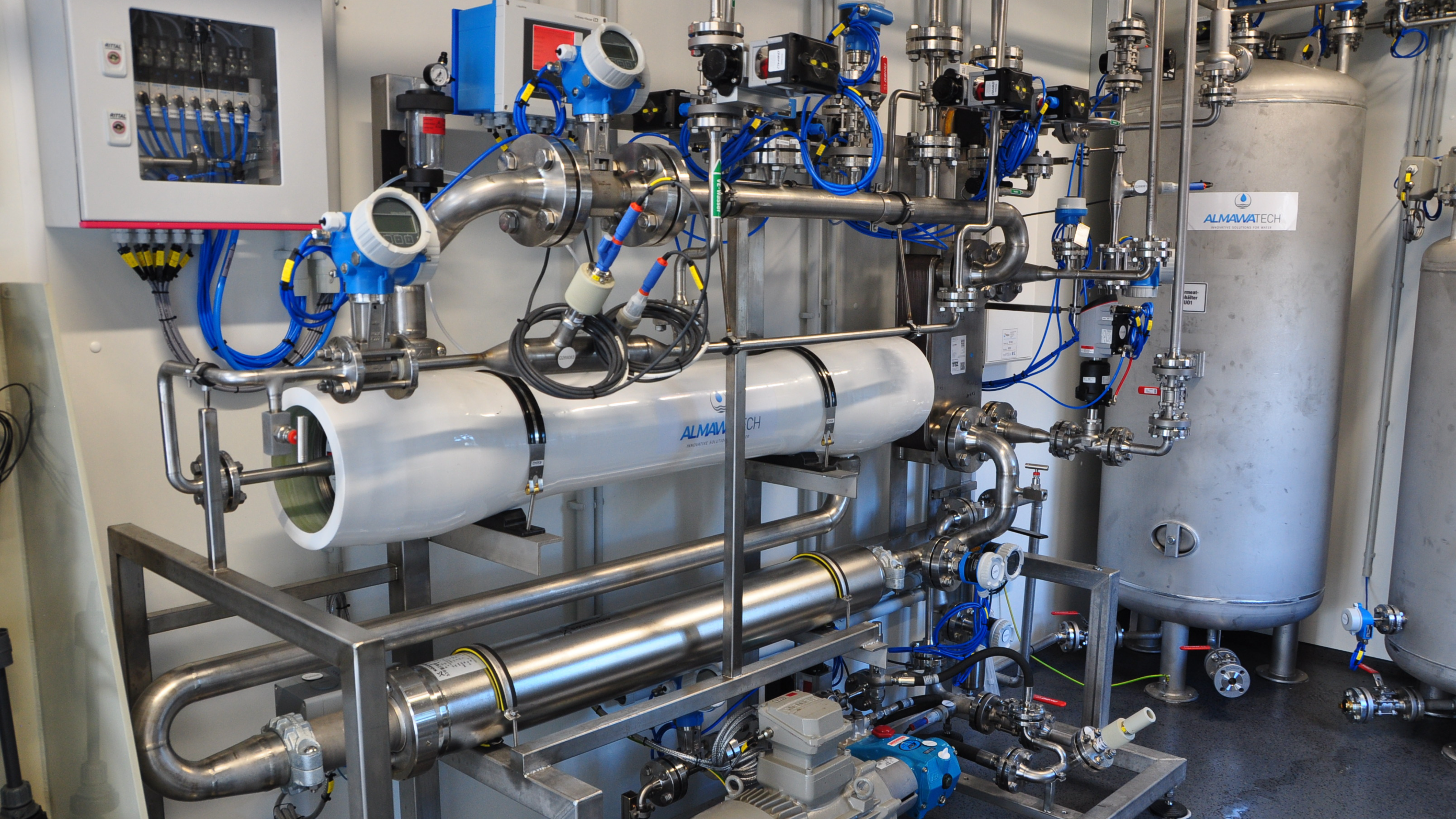
Photo: Our ALMA OSMO concentrate-stage reverse osmosis system on a stainless steel skid
Applications of the skid construction method in water and wastewater technology
1. reverse osmosis and ultrafiltration systems
- Application:
- Drinking water treatment, process water production, seawater desalination.
- Advantages:
- Compact design enables easy integration into industrial production lines.
- Integrated pumps, pre-filters and control technology optimize operability.
2. dosing technology
- Application:
- Precise dosing of precipitants and flocculants, antiscalants or biocides.
- Advantages:
- Skids include dosing pumps, storage tanks and monitoring systems.
- Automation ensures consistent dosing accuracy.
3. ion exchanger
- Application:
- Demineralization (demineralized water) or softening for boiler water, cooling circuits or process water.
- Advantages:
- Pre-assembled ion exchanger tanks with regeneration systems.
- Flexible adaptation to different capacity requirements.
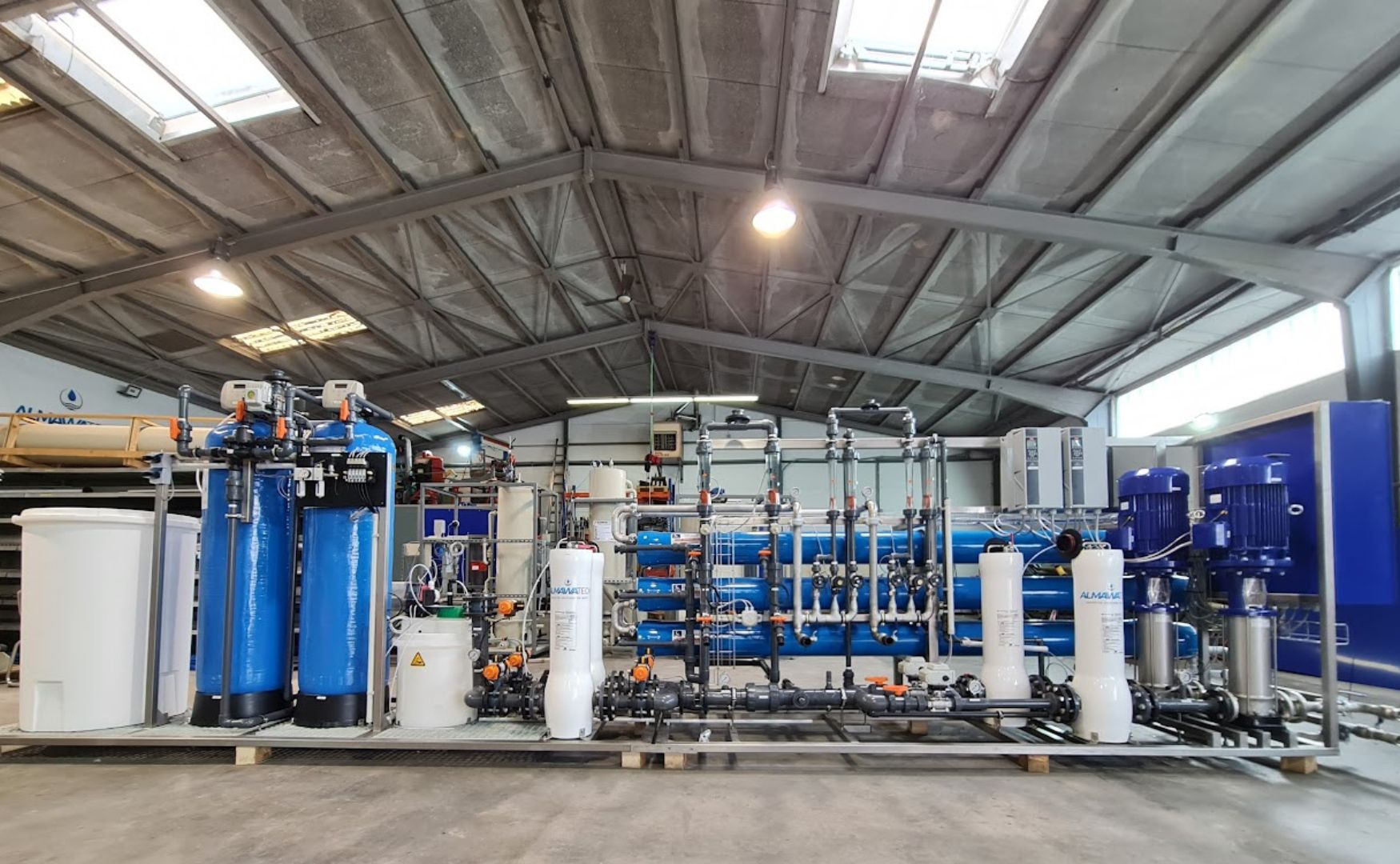
Photo: Our ALMA OSMO reverse osmosis system with water softener and pre-filtration, installed on a stainless steel skid
The challenges of skid construction
Transportation and logistics:
- Large skids may require special transportation requirements.
- Risk of damage during transportation.
Adaptation to specific requirements:
- Customer-specific adaptations can reduce the benefits of standardization.
- Space conditions on site must be checked precisely.
Cost-intensive production for custom-made products:
- Standard skids are inexpensive, but customized solutions can be costly.
Conclusion
The skid design is a modern, efficient and flexible solution for numerous applications in water and wastewater technology. It enables the simple integration of complete systems, reduces installation times and offers a high level of process reliability. The modular design and the ability to make complex systems compact and mobile make skid technology an indispensable part of industrial water treatment. Whether for chemical dosing, reverse osmosis or flotation systems - skid systems stand for efficiency, quality and innovation.
For further information on our products, please feel free to contact us at any time!


